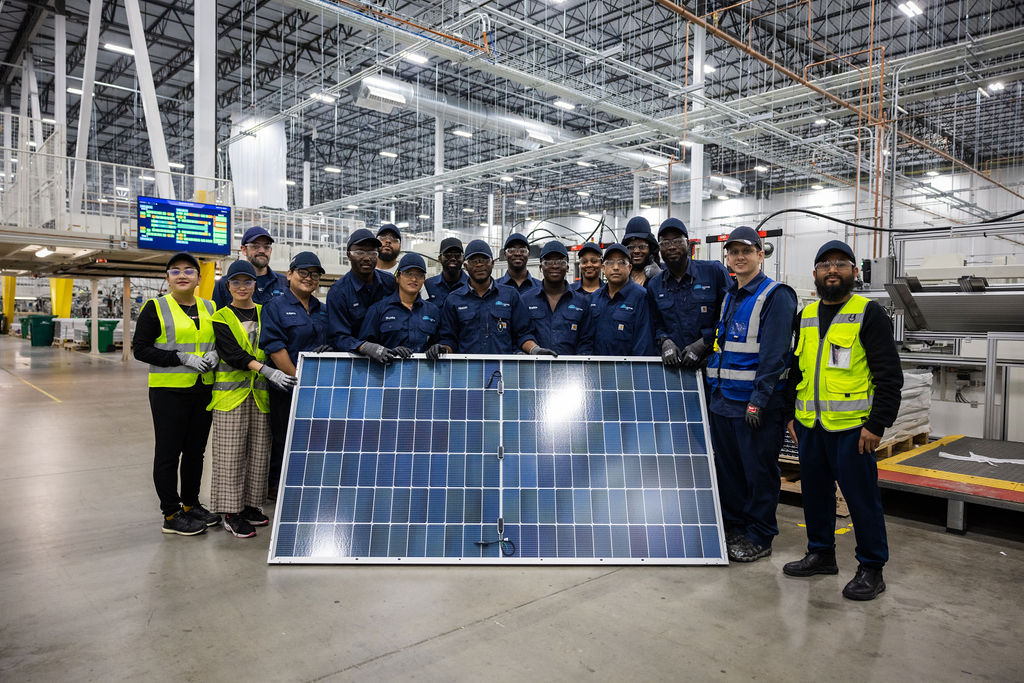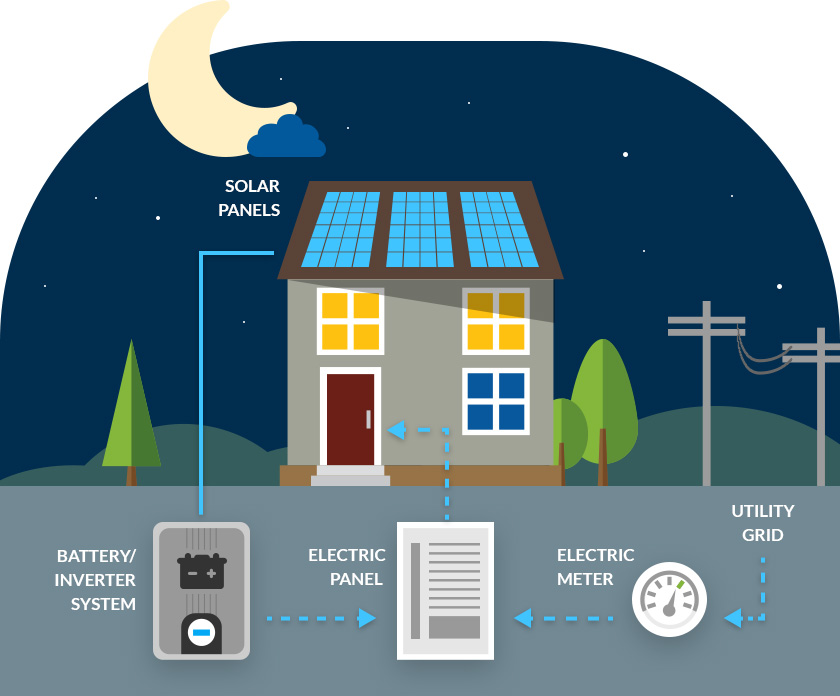The Ultimate Guide To Solar Panel Installation Virginia
The Ultimate Guide To Solar Panel Installation Virginia
Blog Article
Solar Power Installation Virginia: Lumina Solar Specializes In Supplying Advanced Photovoltaic Solutions For Houses And Services
History and Establishing
Have you ever questioned how a photovoltaic panel business springs from a mere trigger of motivation into a powerhouse of renewable energy? It frequently begins with a vision-- one fueled by a mix of development, decision, and a pinch of serendipity. The journey of many solar business mirrors the advancement of the innovation itself: from large, ineffective panels to sleek, high-efficiency marvels harnessing the sun's bounty.
The Early Days
In the late 20th century, when solar power was still a niche concept, leaders planted seeds for what would become a global motion. Envision a small workshop filled with curious engineers, relentlessly try out solar batteries. Their enthusiasm was palpable, typically driven by a desire to fight environment modification and minimize reliance on nonrenewable fuel sources.
One such anecdote has to do with a creator who, inspired by a camping journey, realized that even in remote locations, the sun might power necessary devices. This basic observation stimulated a business's mission to democratize access to clean energy.
Founding Principles

- Innovation: Continuously pressing the borders of solar technology to improve effectiveness and resilience.
- Sustainability: Devoting to eco-friendly production and decreasing carbon footprints.
- Accessibility: Making eco-friendly energy services inexpensive and useful for daily users.
Milestones in Growth
| Year | Key Event |
|---|---|
| 1985 | Business established in a small garage, focusing on research and development. |
| 1995 | Very first commercial solar panel product launched, acquiring local attention. |
| 2005 | Broadened to global markets, accepting worldwide renewable resource objectives. |
| 2015 | Presented cutting-edge photovoltaic panel technology with enhanced energy conversion. |
Isn't it remarkable how these incremental actions, frequently overlooked, form the energy landscape today? The photovoltaic panel business story is not simply about innovation; it has to do with an unrelenting mission for a brighter, cleaner future.

Developments in Photovoltaic Panel Technologies
Ever discovered how some solar panels shine brighter and last longer? It's not magic; it's the science of photovoltaic efficiency. Modern solar panel companies invest heavily in innovations like bifacial cells, which capture sunshine from both sides, improving energy harvest without broadening roofing system area. Have you ever questioned why some panels carry out better on cloudy days? That is because of advances in thin-film solar innovation, which thrives under diffused light conditions.
Item Variations Customized to Unique Requirements
One size never fits all. Solar panel providers now use:
- Monocrystalline panels for optimum effectiveness and smooth aesthetics, suitable for space-constrained roofs.
- Polycrystalline panels, which offer an affordable option without sacrificing too much output.
- Building-integrated photovoltaics (BIPV), merging solar tech flawlessly into architectural components like windows and facades.
Picking the best item isn't practically upfront cost; it's about matching your environment, energy objectives, and long-lasting cost savings. For example, here homes shaded by trees require panels that stand out in low-light circumstances, something many neglect till energy expenses climb up all of a sudden.
Technical Tips for Optimal Choice
- Examine the temperature coefficient-- lower worths mean panels lose less effectiveness on hot days.
- Search for panels with improved anti-reflective coatings to take full advantage of light absorption.
- Consider the panel's guarantee not simply for defects, but for ensured power output over decades.
- Don't undervalue the importance of the inverter innovation combined with the panels; it can make or break your system's performance.
Beyond Panels: Emerging Patterns
Imagine photovoltaic panels that adjust their angle automatically to chase the sun-- tracking systems are becoming more accessible, increasing yield significantly. Or solar tiles that blend invisibly into your roofline, changing your home into a quiet, self-dependent power generator. These innovations are reshaping what a solar panel company uses-- not just items, but incorporated energy options.
Market Presence and Global Operations
Ever question why some solar panel companies appear to grow up in every corner of the world while others hardly make a ripple? The difference lies not just in technology however in mastering the art of navigating diverse markets. Expanding worldwide is like planting seeds in various environments-- you must understand each environment's special conditions to thrive.
Take, for circumstances, the intricate dance of logistics and supply chain management. Shipping panels midway across the world isn't practically distance; it has to do with timing, custom-mades, tariffs, and adjusting to regional need changes. A business with robust worldwide operations anticipates these variables, guaranteeing panels show up on schedule without inflating costs. This foresight is no little task and typically separates market leaders from fans.
Secret Strategies for Expanding Market Presence
- Localized manufacturing: Developing production hubs near target audience lowers shipping hold-ups and import complexities.
- Strategic partnerships: Collaborating with regional firms speeds up market penetration and builds trust.
- Adaptive product style: Tailoring solar panel tech to weather, sun strength, and facilities subtleties enhances performance and acceptance.
What about the human factor? Solar panel companies operating internationally should reconcile cultural distinctions and regulative nuances without losing sight of their core objective. For example, what operate in a sun-drenched desert may fail in a humid seaside area. In some cases, the most ingenious service is just listening-- taking in local insights to improve innovation and method.
Specialists frequently advise a phased rollout rather than a shotgun growth. Why risk overextension when measured development develops sustainable momentum? Scaling sensibly indicates balancing aspiration with functional durability - Commercial Solar Panels Virginia. In the race for sustainable energy supremacy, persistence can be as important as speed.
Ecological Impact and Sustainability Practices
When solar panels first emerged, lots of presumed they carried no ecological baggage. The truth is more nuanced. The production of photovoltaic cells includes unusual earth metals and energy-intensive procedures, which can leave a large carbon footprint before the panels even reach rooftops. Yet, the real ecological expense depends greatly on the sustainability practices used by the solar panel company throughout the lifecycle of their items.
How often do we stop briefly to consider what takes place to photovoltaic panels at the end of their beneficial life? Unlike batteries or electronics, solar panels can last 25-30 years, however disposal and recycling paths stay underdeveloped in lots of regions. A business committed to decreasing ecological harm will have a robust prepare for recycling photovoltaic materials, salvaging important silicon, glass, and metals to avoid land fill accumulation.
Key Sustainability Strategies
- Using low-impact manufacturing strategies that reduce water and energy usage.
- Executing closed-loop systems to recycle production waste back into brand-new panels.
- Participating in transparent supply chain audits to guarantee ethical sourcing of basic materials.
- Creating panels for simpler disassembly to help future recycling efforts.
It's worth keeping in mind that some solar companies have actually originated innovative techniques, such as integrating eco-friendly elements or utilizing less harmful chemicals during fabrication. This not only reduces ecological pressure however likewise sets a precedent for the market. The concern remains: can the solar industry truly pivot towards a circular economy model without compromising performance or cost?
Specialist Tips for Assessing Sustainability
- Inquire about the business's commitment to carbon-neutral production and whether they offset emissions.
- Examine if they partner with licensed recycling facilities dedicated to solar panel waste.
- Try to find openness reports detailing ecological impacts and sustainability objectives.
- Consider the durability and guarantee of panels as an indirect step of resource efficiency.
In the end, going with solar energy should mean more than just slashing electrical power bills; it's about supporting a future where energy is collected responsibly and waste is attentively handled. Photovoltaic panel business that accept this philosophy not only light up homes but also cast a brighter light on sustainable development.
Report this page